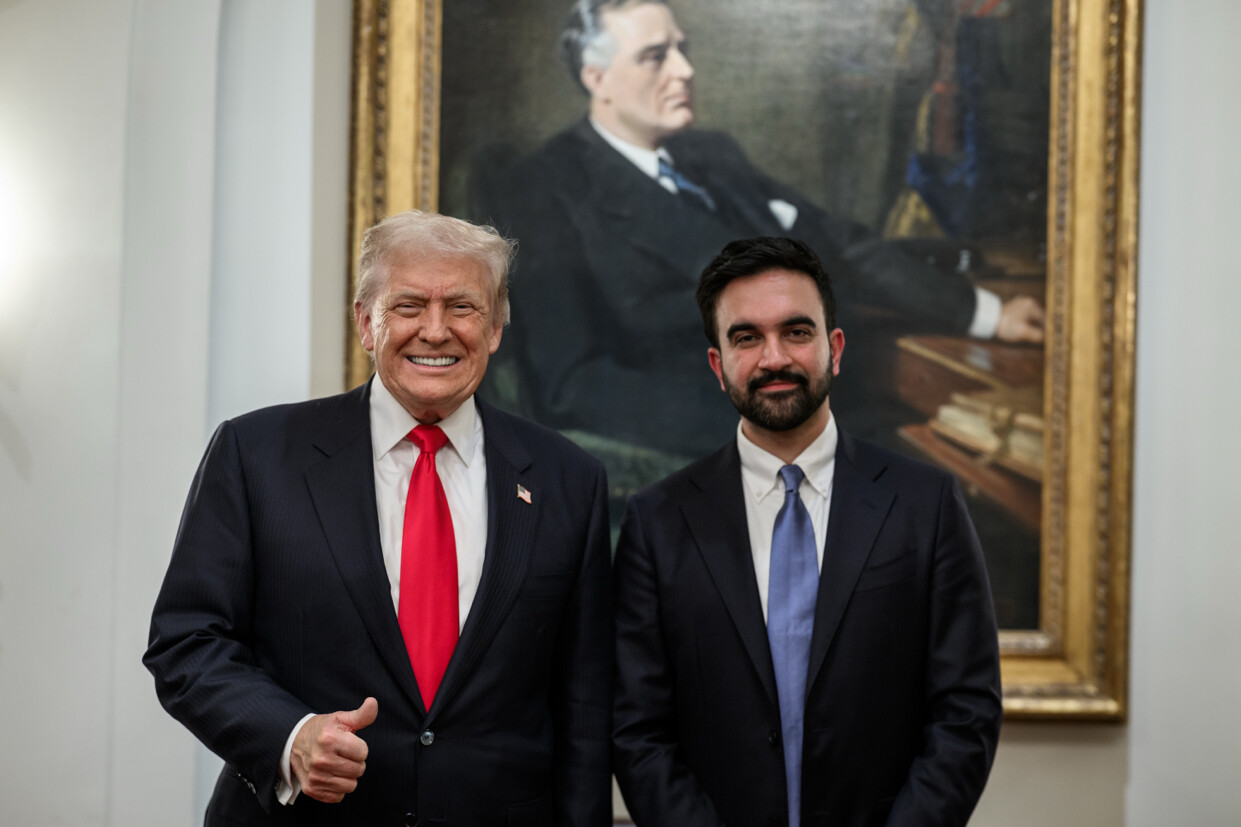On Friday, 21 November 2025, New York City’s mayor-elect Zohran Mamdani met with U.S. President Donald Trump at the White House, in what many observers described as a surprisingly cordial and even cooperative encounter — despite years of personal and political animosity between the two. Reuters+1
From Insults to “Productive” Talks
Just weeks ago, Trump had branded Mamdani — a democratic socialist and the city’s first Muslim mayor-elect — a “100% Communist Lunatic,” warning that a Mamdani victory could lead to New York’s fiscal ruin. Meanwhile, Mamdani had routinely condemned Trump’s immigration policies and support for Israel during the Gaza war. India Today+1
Yet at the Oval Office meeting, both men struck a dramatically different tone. Trump told reporters after the meeting: “We agree on a lot more than I would have thought.” The Guardian+1 Mamdani, for his part, described the meeting as “productive,” focused on shared concerns for New Yorkers — especially affordability, public safety, and economic security. Al Jazeera+1
The shift was real. Trump even offered an olive branch seemingly unimaginable a month ago: calling for cooperation, discussing support for housing, and avoiding references to past insults. Al Jazeera
What They Agreed On: Affordability & City Services
The core of the meeting revolved around practical, non-partisan concerns:
- Cost of living: rent, utilities, groceries — issues that have burdened millions of New Yorkers. Both men expressed a desire to improve affordability. Politico+1
- Public safety: rising crime, the need for effective policing and community support. Trump told the press he wants to help Mamdani succeed, while Mamdani reiterated he would fiercely defend the interests of New Yorkers. Axios+1
- Housing and urban development: Mamdani spoke of accelerated housing construction, and Trump surprisingly endorsed elements of that aim. The Guardian+1
The contrast with the 2024 campaign could not be starker.
Still, Deep Differences Remain
Despite the outward cordiality, Mamdani did not retract his earlier judgments of Trump — calling him a “fascist” and a “despot,” and warning that he would oppose any policy threatening immigrants or low-income New Yorkers. People.com+1
In response, Trump, appearing relaxed, joked with reporters that being called a “despot” was “not that insulting.” The Guardian+1
The meeting avoided discussion of the administration’s hardline stances on immigration or foreign policy — especially sensitive issues related to Israel and Gaza, which had rallied Mamdani’s progressive base. Al Jazeera+1
Hence, while the optics suggested rapprochement, substantive ideological conflict remains unresolved.
What Does This Meeting Signal? – My Analysis
This unexpected détente between Trump and Mamdani — a man he once viciously attacked — is not just a curious political moment. It may mark a subtle but meaningful shift in U.S. politics, with broader implications:
1. Pragmatism over Purity
Both sides appear to be embracing a form of political pragmatism. Mamdani’s decision to meet Trump and seek cooperation on day-to-day issues (cost of living, housing, city safety) reflects a desire to prioritise governance over ideology. In turn, Trump’s willingness to soften his tone and position himself as a collaborator suggests a strategic adaptation: recognising that dismissing a newly elected urban leader might alienate moderate and working-class voters.
For Trump, the meeting may also help soften his image among urban and immigrant communities at a time when economic anxiety is growing across the country. For Mamdani, it offers access to federal levers of power that a mayor needs to deliver tangible results — perhaps even a chance to prove that a progressive administration can deliver without confrontation.
2. Populism Goes Bipartisan
What stands out is how affordability and cost-of-living concerns have become issues with broad populist appeal — uniting voices from the right and the left. In a moment of economic insecurity, voters seem less concerned about party labels than about bread, rent, and basic necessities. In this context, politicians as ideologically different as Trump and Mamdani can find common ground.
This could signal a potential realignment in U.S. politics where old partisan boundaries blur around shared economic anxieties — especially in cities like New York where the cost-of-living crisis is acute.
3. The Limits of Symbolism
Still, symbolic gestures can only go so far. The meeting avoided foundational disagreements: immigration policy, foreign policy, social justice, civil rights. Mamdani reaffirmed his prior condemnation of Trump, meaning any collaboration is likely to remain transactional.
Moreover, Trump’s concessions must be tested against actual policy outcomes: Will federal funding hold? Will cooperation on housing and crime survive political pressures from his base? Will Mamdani’s progressive coalition accept mayorship under a president they deeply distrust? These questions remain open.
4. A Message to Progressive Cities: Engage or Endure
For progressive leaders in other major U.S. cities, this meeting sends a message: if you want results — especially on bread-and-butter issues like housing, utilities, and safety — being open to working with a hostile federal government may be more effective than constant confrontation. It introduces a template for compromise: maintain ideological integrity on major issues, but pick your battles, and engage on shared ground for essentials.
Conclusion: An Unlikely Opening — But Not a Reconciliation
The Trump–Mamdani meeting may not make history in the sense of uniting ideologies, but it has opened a pragmatic channel of cooperation where once there was only hostility. For New Yorkers facing high living costs and little relief in sight, that may be enough — at least for now.
Whether this becomes a lasting partnership or a fleeting moment of convenience depends on the coming months: on whether both leaders translate rhetoric into action. For now, the political theatre has offered a glimmer of compromise. But in Washington — and in New York — actions speak louder than words.






